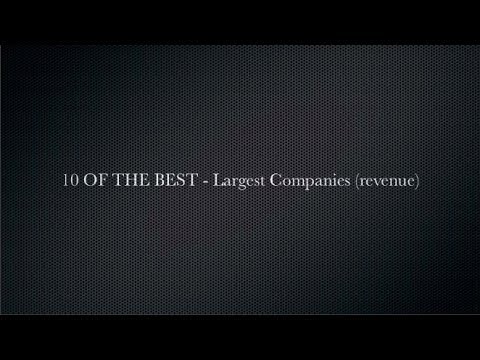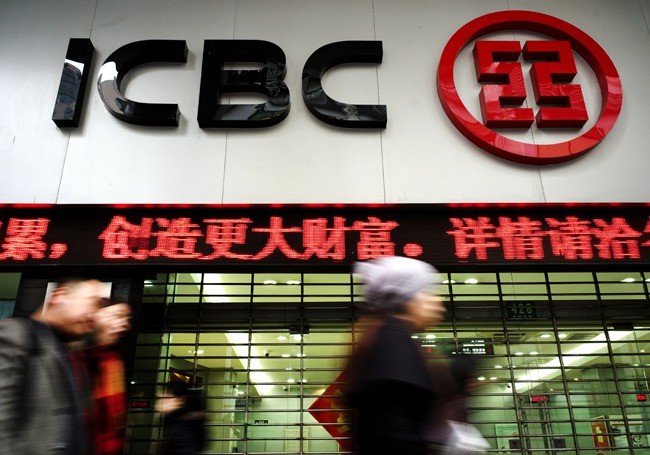The World s Largest Companies China Takes Over The Top Three Spots
Post on: 13 Июль, 2015 No Comment

Follow Comments Following Comments Unfollow Comments
Your guide to the global business landscape is here.
The FORBES Global 2000 is a comprehensive list of the world’s largest, most powerful public companies, as measured by revenues, profits, assets and market value. We weight the four numbers equally to come up with a composite score, in pursuit of our goal to best capture the full picture of corporate size.
This year, the Global 2000 companies hail from 62 countries, up from 46 in our inaugural 2003 ranking. In total, they raked in revenues of $38 trillion and profits of $3 trillion, with assets worth $161 trillion and a market value of $44 trillion. All those totals are higher than a year ago, with the largest growth being in market value (up 13% year-over-year). These firms employ 90 million people worldwide.
For the first time, China is home to the world’s three biggest public companies and five of the top 10. State-controlled Chinese bank ICBC ICBC holds onto its No.1 spot for a second consecutive year, while China Construction Bank China Construction Bank takes second place and Agricultural Bank of China Agricultural Bank of China moves up five spots to third. They’re joined in the top 10 by the other member of the “Big Four” Chinese banks, Bank of China, at No.9.
As China gains ground, its best frenemy – the United States – account for the other half of the top 10 spots. Berkshire Hathaway Berkshire Hathaway and Wells Fargo Wells Fargo both move up four spots to No.5 and No. 9, respectively. J.P. Morgan J.P. Morgan slides to fourth place as its total composite score slipped behind Agricultural Bank of China. Say goodbye to the two Europe -based companies in Top 10 last year, Royal Dutch Shell Royal Dutch Shell (No.11) and HSBC Holdings HSBC Holdings (No.14).
The list presents an annual snapshot of the ever-changing global business landscape. The U.S. holds onto its crown as the country with the most Global 2000 companies: 564. Japan trails the U.S. with 225 companies in aggregate, despite losing the most members (26) this year. China (mainland and Hong Kong) adds 25 to the list this year, more than any other country, for a total of 207. Two countries debut on the list this year: Mauritius and Togo.
Since FORBES published the first Global 2000 list in 2003, the power dynamics between the West and the East have shifted dramatically. This year we break down the list to seven regions to take a more nuanced look at regional differences. With 674 members in total, Asia easily takes the lead, leaving North America (629 members) and Europe (506 members) behind. That’s a stark contrast from 11 years ago when North America dominated the list with over 50% more than Asia’s total number. Emerging markets, especially Middle East and Central & South America, also gained significant shares in the past decade with 265% and 76% growth respectively. While Africa still has the least Global 2000 members, the continent has made slow progress, adding seven companies to the list. Four of the African newcomers are based in Nigeria, giving it a total of five.

Take a peek at the top of each metric, and you will find the best of the biggest. Apple Apple. which stays at No.15, is again the world’s most valuable company. Wal-Mart Stores Wal-Mart Stores remains the world’s sales leader, despite a steep drop in profit. Six years after being bailed-out in the financial crisis, mortgage giants Fannie Mae Fannie Mae and Freddie Mac Freddie Mac finally bring some good news to their investors. Fannie Mae not only consolidates its top spot in terms of total assets, but also has become the most profitable company. With a record $84 billion in profit, its accumulated payments to the federal government have now exceeded the amount it received during the 2008 bailout. Its competitor, Freddie Mac, also shines as the second most profitable company thanks to a 345% jump in profit ($49 billion).
There are 179 newcomers to this year’s Global 2000. Many household names make their debut thanks to the steadily rising equity market, the return of corporate deals, and a new wave of IPOs. With a 561% year-over-year surge of market value, investors’ darling Tesla Motor is defying skeptics of its $5 billion Gigafactory investment. Japanese beverage giant Suntory (No. 1083) stunned the world by buying Jim Beam Beam for $13.6 billion in cash, creating the largest food and beverage company on this year’s Global 2000. Quite a few notable newcomers have joined the list thanks to their successful IPOs, such as Hilton Worldwide Hilton Worldwide (No. 700), Twitter (No. 1645) and Australia’s Nine Entertainment (No. 1749).
If you are looking for big jumps in rank, you can start with some familiar personalities and the companies behind them. Thanks to Mark Zuckerberg ’s newfound yen for helping Facebook make money, the social network has moved up 561 spots to No. 510 this year with 55% growth in sales and 2711% growth in profits. In a turnaround led by Meg Whitman. Hewlett-Packard, one of the biggest losers from last year (No. 438 in 2013), has returned to profitability and climbed 358 spots to No. 80. Media mogul John Malone. who made headlines with his bid to gobble up the rest of Sirius XM, also had a good run with Liberty Media Liberty Media. which moves up 440 spots to No. 651 thanks to big jumps in profit and market value.
Of course, not everyone has a good year – broader industry and country outlooks often affect the performance of individual companies. With China’s economy slowing, Sany Heavy Industries, the country’s second largest construction equipment maker, has dropped 851 spots to No. 1398 due to a steep slide in sales. British supermarket chains Tesco Tesco (No. 465) and Morrison Supermarkets (No. 987) have gone head-to-head in a price war, cutting profits for both. Falling gold price have dropped Canada’s Barrick Gold Barrick Gold to No. 771 (down 112 spots) as sales continued to slide while net losses widened.














